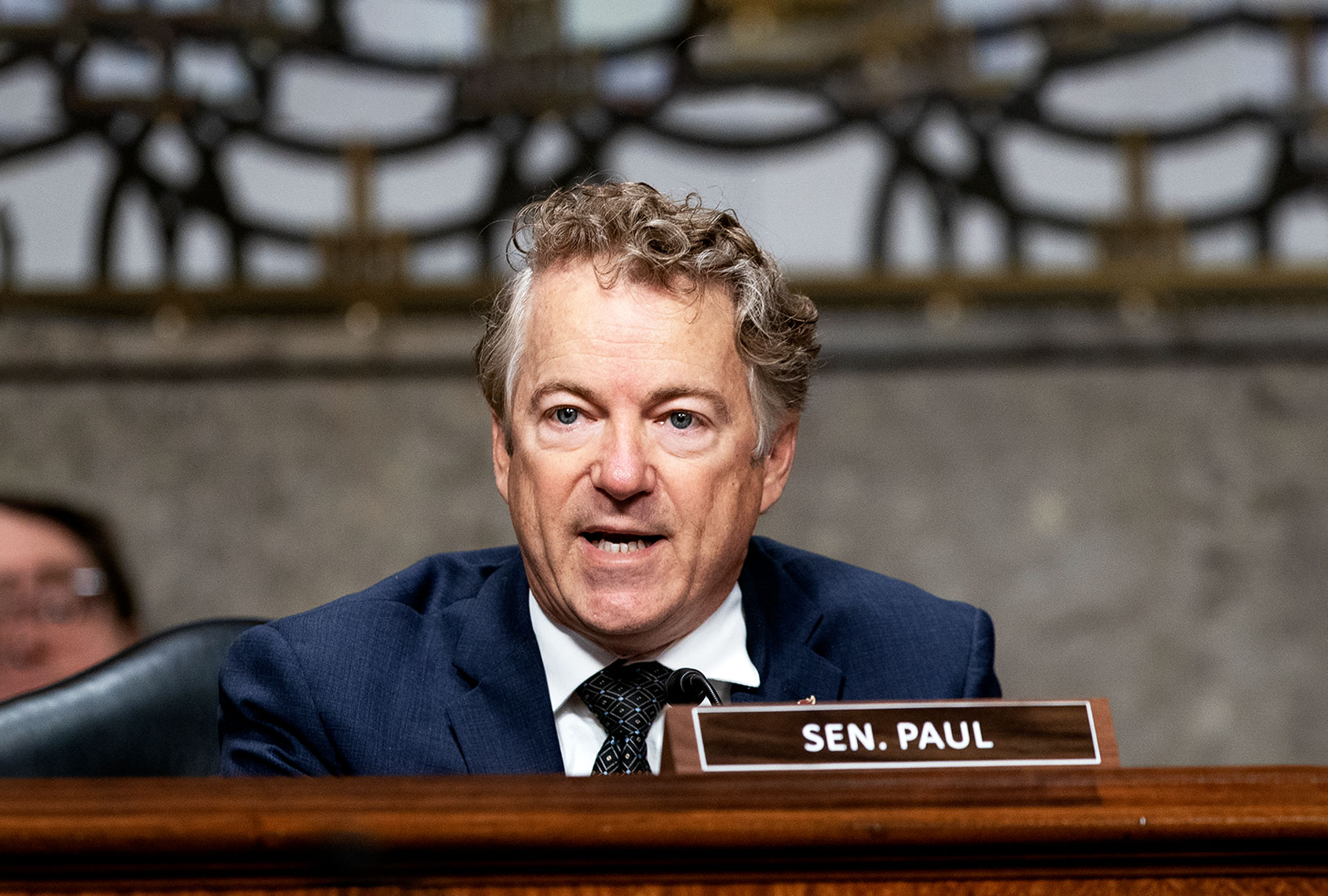Sen. Rand Paul, R-Ky., on Thursday blocked a Senate bill to provide nearly $40 billion in aid to Ukraine, delaying legislation that leaders from both parties sought to urgently pass.
Secretary of State Antony Blinken and Defense Secretary Lloyd Austin warned Congress earlier this month that existing authorized aid to Ukraine would run out by May 19. Senate Minority Leader Mitch McConnell, R-Ky., kicked off Thursday’s session by stressing that lawmakers from “both sides” needed to urgently support the bill “today.” Sen. John Kennedy, R-La., dropped his demand to include language establishing a special inspector general to oversee the aid after agreeing to a separate vote on his amendment. But Paul, who also demanded the bill include a special inspector general to scrutinize where the money is going, rejected the same offer to hold a separate vote on his amendment.
“My oath of office is to the U.S. Constitution, not to any foreign nation. Congress is trying yet again to ram through a spending bill – one that I doubt anyone has actually read – and there’s no oversight included into how the money is being spent,” Paul said on Twitter. “All I requested is an amendment to be included in the final bill that allows for the Inspector General to oversee how funds are spent. Anyone who is opposed to this is irresponsible.”
He added that he “sympathizes” with the people of Ukraine but argued that providing aid to fight Russia is “threatening our own national security, and it’s frankly a slap in the face to millions of taxpayers who are struggling to buy gas, groceries, and find baby formula.”
RELATED: Rand Paul goes to bat for Putin: “The countries they’ve attacked were part of Russia”
The House earlier this week voted 368-57 to provide Ukraine with an additional $40 billion in military and humanitarian aid. Ukrainian President Volodymyr Zelenskyy praised the vote and the Senate sought to unanimously pass the legislation on Thursday before leaving for the week. But Senate rules allow any single senator to block a unanimous consent vote, leaving the legislation in limbo until at least next week.
McConnell and Senate Majority Leader Chuck Schumer, D-N.Y., tried to cut a deal with Paul to hold a separate vote on his amendment because changing the bill text would have required the Senate to send the bill back to the House. Paul, whose amendment is likely to fail to gain the 60 votes needed to pass, rebuffed the offer.
“I think they’re going to have to go through the long way,” Paul told The Hill.
Schumer and McConnell both lashed out at Paul’s delay.
“There is now only one thing holding us back, the junior senator from Kentucky is preventing swift passage of Ukraine aid because he wants to add, at the last minute, his own changes directly into the bill … He is not even asking for an amendment. He is simply saying my way or the highway,” Schumer said on the Senate floor. “I’m offering to hold a vote on his amendment, even though I disagree with it. Let the chamber speak its will. Let both sides of the aisle have input and for heaven’s sake, let Ukraine funding get done ASAP.”
McConnell said that while he understood Paul’s desire for oversight, the “simple way to solve this” was to hold a separate vote on the amendment as Schumer had offered.
“Ukraine is not asking us to fight this war,” McConnell said on the Senate floor. “They’re only asking for the resources they need to defend themselves against this deranged invasion, and they need help right now.”
Want a daily wrap-up of all the news and commentary Salon has to offer? Subscribe to our morning newsletter, Crash Course.
Paul argued that the additional aid was comparable to Russia’s entire defense budget and would contribute to growing the deficit even though Congress spends more than $750 billion per year on defense.
“Helping Ukraine is not an instance of mere philanthropy,” McConnell said. “It bears directly on America’s national security and vital interests that Russia’s naked aggression not succeed and carries significant costs.”
Democrats objected to Paul’s amendment because it would expand the purview of the inspector general tasked with overseeing U.S. spending in Afghanistan, which they argued would deny President Joe Biden the opportunity to appoint his own inspector general as past presidents have done. White House press secretary Jen Psaki noted on Thursday that the aid package already includes “additional funding for existing inspectors general.”
Paul, who has repeatedly criticized U.S. involvement overseas and unsuccessfully ran for president in 2016, has a lengthy history of using last-minute demands to block or delay the passage of legislation, including past sanctions against Russia, federal government funding, and health care for 9/11 first responders.
The Ukrainian aid package was hammered out over weeks of negotiations as Congress increased the amount of funding from the $33 billion Biden initially sought while the White House agreed to drop its demand for Congress to use the package to also provide pandemic programs that had lapsed so that the aid would be approved more quickly.
Schumer said Paul’s demand was at odds with the “overwhelming majority” of lawmakers from both parties.
“Again, all he will accomplish with his actions here today is to delay that aid, not to stop it,” Schumer said. “It’s aid desperately needed by a valiant people fighting against authoritarianism and defending democracy.”
Read more:

